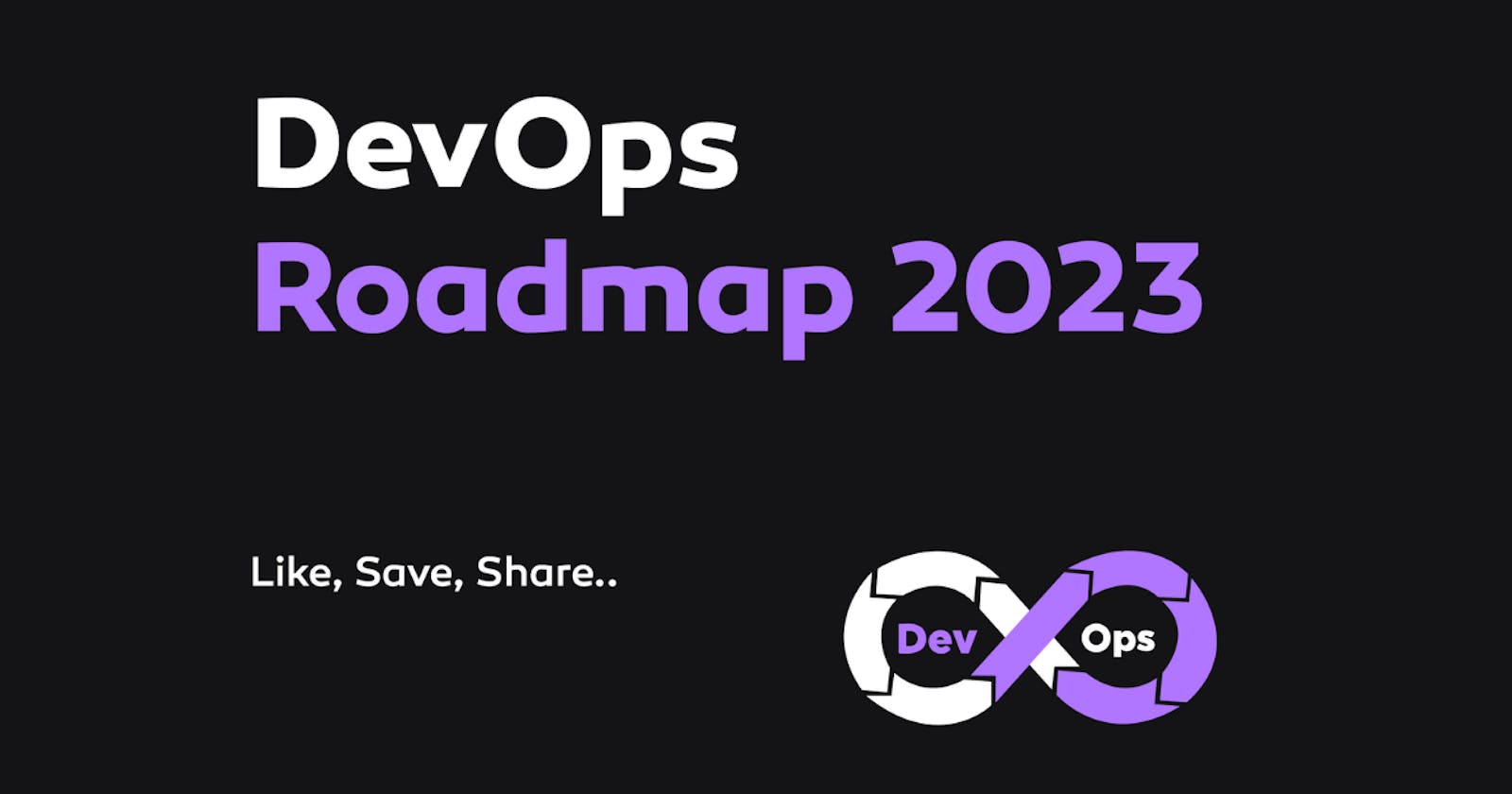DevOps Roadmap 2023 - Ultimate guide to become a DevOps Engineer
My guide on becoming a DevOps Engineer in 2023
DevOps is a rapidly growing field, and with the increasing demand for skilled professionals, many people are looking to make the switch. However, knowing where to begin and what steps to take to become a DevOps Engineer can be difficult.
In this article, I will provide a comprehensive roadmap for those looking to make the transition. We will go over the necessary skills, knowledge, and experience, as well as the steps you can take to acquire them. This post will provide valuable insights and guidance whether you are just starting or are well on your way to becoming a DevOps Engineer.
Prerequisites
The first one being linux and the second one is networking fundamentals, along with a programming language, which I highly recommend to be Python. For networking fundamentals, learn about DNS, TCP, UDP and how the internet works. For these prerequisites, I highly recommend learn to cloud . If you have followed me, some of you already might know what learn to cloud is. It's the free open-source guide to learn cloud. Gwyn has covered each prerequisite that I mentioned.
Now, let's see the DevOps roadmap:
Roadmap:
1. Version Control System (VCS):
Begin by learning the rudiments of version control systems (VCS), like Git. This will allow you to follow changes to your code, team up with different developers, and maintain a history of your codebase.
2. Continuous integration and continuous deployment (CI/CD):
When you have a strong understanding of version control systems, learn about continuous integration (CI) and continuous deployment (CD). CI/CD is a bunch of practices that permit engineers to build, test, and deploy their code consequently, assisting with accelerating the development cycle and reducing the risk of errors.
3. Infrastructure as Code (IaC):
Next, learn about infrastructure as code (IaC). IaC is the act of overseeing infrastructure (for example servers, networks, and different assets) through code, instead of physically deploying and manually configuring every part. This assists with automating the infrastructure deployment process, making it more straightforward to deploy and scale applications.
4. Configuration Management:
After learning about IaC, move on to configuration management. Configuration management is the practice of maintaining the consistency and reliability of an application or system over time, through the use of tools and processes.
5. Containerization:
Another important skill for DevOps Engineers is containerization. Containers allow you to package your application and its dependencies together, making it easy to deploy and run on any system. Learn about Docker and K8s.
Docker allows you to package an application and its dependencies in a container, and then run the container as an isolated process on a host machine, whereas, Kubernetes (K8s) is an open-source platform for automating the deployment, scaling, and management of containerized applications.
6. Monitoring/Observability:
At last, learn about monitoring and observability. These practices include utilizing tools and processes to track the performance and health of your applications and infrastructure, so you can rapidly identify and fix any issues that emerge.
I also have a YouTube video on this roadmap, that you can check out 👇🏾
I know DevOps is a hot topic right now and this roadmap doesn't cover all the practices and tools that are out there, but I believe these fundamentals are really necessary and you will need these to develop additional DevOps skills.
If you find this article informational and would like to hear more from me, you can find me [at]rishabk7 on Twitter.

